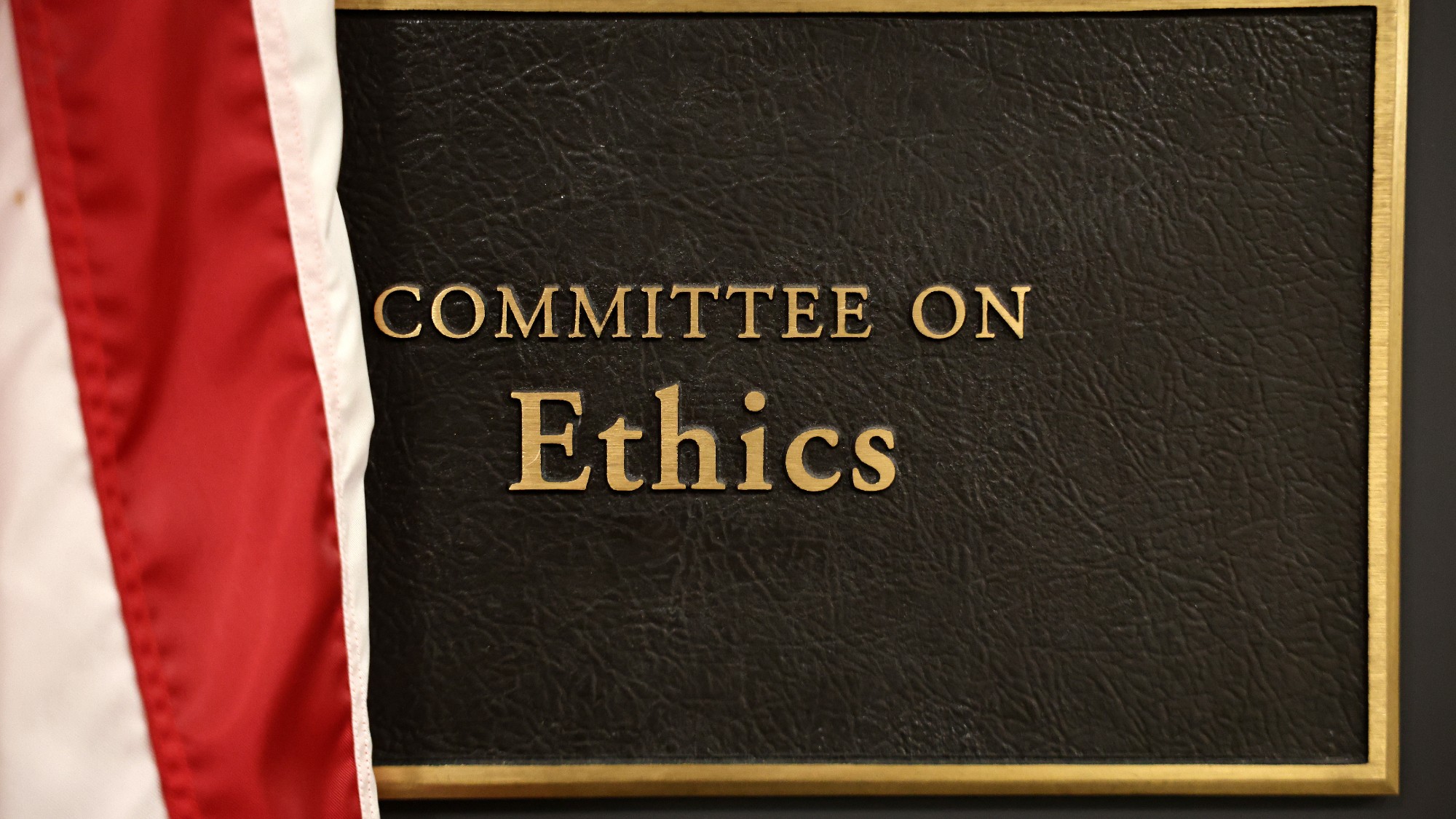How does the House Ethics Committee work?
And what does that mean for Matt Gaetz?


A free daily email with the biggest news stories of the day – and the best features from TheWeek.com
You are now subscribed
Your newsletter sign-up was successful
The House Ethics Committee played an important role in the post-election drama for Donald Trump. Its investigation of former Rep. Matt Gaetz (R-Fla.) — Trump's first nominee for attorney general — turned out to be a pivotal reason for Gaetz's withdrawal from consideration.
The committee was created in 1967 "to enforce standards of conduct for members, officers and employees" of Congress' lower branch, the House Ethics Committee said in a history on its website. (The impetus was a scandal involving Rep. Adam Clayton Powell (D-N.Y.), which ultimately caused him to lose his seat.) The Constitution gives the House the authority to discipline its members, but the chamber had "no uniform or consistent mechanism for self-discipline until the 1960s." Before that, allegations of misconduct were pursued in an "ad hoc manner by special committees."
How does the committee make decisions?
Investigations of misconduct begin in the Office of Congressional Ethics, said CBS News. The office has six non-House members — private citizens — who are given a limited time frame (30 days) to conduct investigations, and can do so only if two of the six members find a "reasonable basis" for inquiry. After the first 30 days, three members of the OCE must determine there is "probable cause" a violation took place for the inquiry to continue. Eventually, if four members agree, the report is referred to the House Ethics Committee. Why is that important? "The OCE doesn't have subpoena power," said CBS. The committee does.
The Week
Escape your echo chamber. Get the facts behind the news, plus analysis from multiple perspectives.

Sign up for The Week's Free Newsletters
From our morning news briefing to a weekly Good News Newsletter, get the best of The Week delivered directly to your inbox.
From our morning news briefing to a weekly Good News Newsletter, get the best of The Week delivered directly to your inbox.
Bipartisanship is necessary for misconduct to be found. The committee is an "evenly divided panel," said The New York Times. There are always five Democrats and five Republicans on the committee, no matter which party has a majority in the House — making it difficult for either party to use the committee as a weapon against the other. That can also lead to gridlock: After Gaetz resigned from Congress, five Democrats initially voted to release the report on the committee's investigation into allegations of "sexual misconduct and illicit drug use" against him. The five Republicans voted against the release. Without a majority, the report went unreleased at that time. However, as of Dec. 23, the House Ethics Committee released its report.
How has the committee changed?
The committee's jurisdiction has expanded over the years, said the Congressional Research Service. Initially empowered to investigate violations of the law, the committee over time has included issues involving lobbying, campaign finance and other potential areas of misconduct. That hasn't always been popular: In 2017, the GOP majority in the House tried to weaken the OCE, said NPR. The office "is in need of reform," said then-House Speaker Paul Ryan. But there was a public backlash, and Republicans backed away from their efforts.
Members have resigned in order to prevent reports from the House Ethics Committee being made public: It is "exceedingly rare for an ethics report to be released after a member has left Congress," said CNN. But there are exceptions: The committee reversed itself in December — after Gaetz resigned from the House — and voted to release its report into the allegations against him. The report said the committee's yearslong investigation found "substantial evidence" Gaetz had "violated House rules, state and federal laws, and other standards of conduct prohibiting prostitution, statutory rape, illicit drug use, acceptance of impermissible gifts" and other violations.
A free daily email with the biggest news stories of the day – and the best features from TheWeek.com
Joel Mathis is a writer with 30 years of newspaper and online journalism experience. His work also regularly appears in National Geographic and The Kansas City Star. His awards include best online commentary at the Online News Association and (twice) at the City and Regional Magazine Association.
-
 Grand jury rejects charging 6 Democrats for ‘orders’ video
Grand jury rejects charging 6 Democrats for ‘orders’ videoSpeed Read The jury refused to indict Democratic lawmakers for a video in which they urged military members to resist illegal orders
-
 Democrats push for ICE accountability
Democrats push for ICE accountabilityFeature U.S. citizens shot and violently detained by immigration agents testify at Capitol Hill hearing
-
 House ends brief shutdown, tees up ICE showdown
House ends brief shutdown, tees up ICE showdownSpeed Read Numerous Democrats joined most Republicans in voting yes
-
 Democrats win House race, flip Texas Senate seat
Democrats win House race, flip Texas Senate seatSpeed Read Christian Menefee won the special election for an open House seat in the Houston area
-
 Will Peter Mandelson and Andrew testify to US Congress?
Will Peter Mandelson and Andrew testify to US Congress?Today's Big Question Could political pressure overcome legal obstacles and force either man to give evidence over their relationship with Jeffrey Epstein?
-
 Rep. Ilhan Omar attacked with unknown liquid
Rep. Ilhan Omar attacked with unknown liquidSpeed Read This ‘small agitator isn’t going to intimidate me from doing my work’
-
 Can anyone stop Donald Trump?
Can anyone stop Donald Trump?Today's Big Question US president ‘no longer cares what anybody thinks’ so how to counter his global strongman stance?
-
 House approves ACA credits in rebuke to GOP leaders
House approves ACA credits in rebuke to GOP leadersSpeed Read Seventeen GOP lawmakers joined all Democrats in the vote



